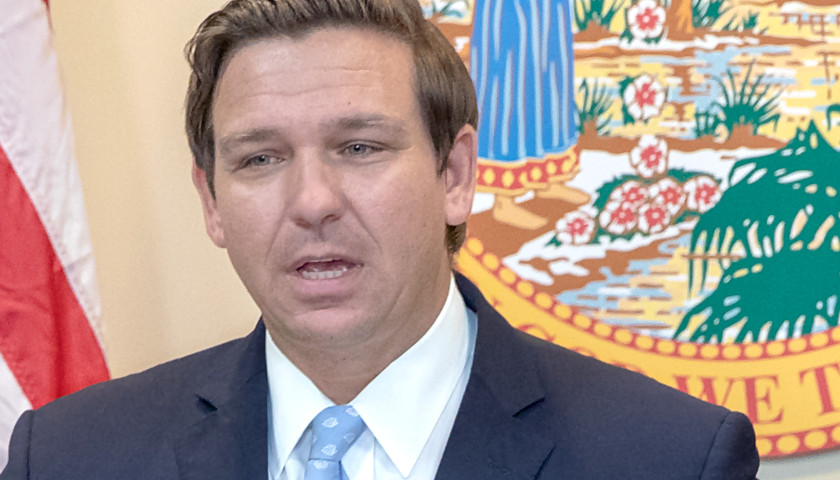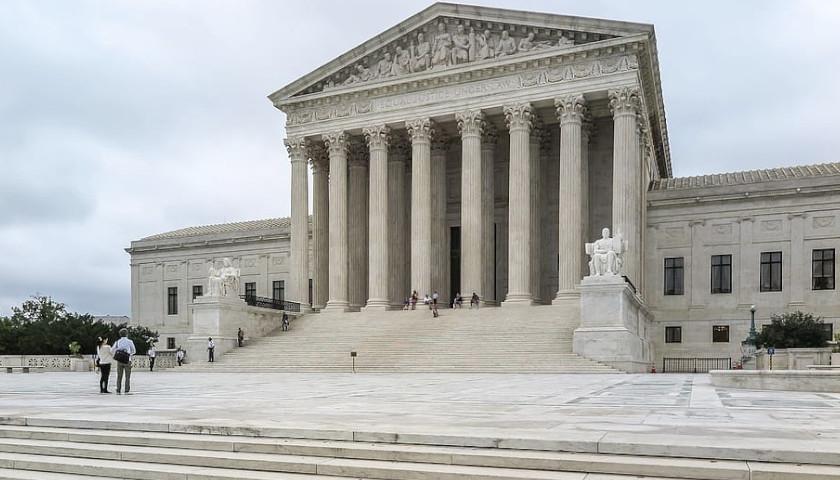by John Haughey
Gov. Ron DeSantis wants the Florida Supreme Court to issue an advisory opinion on whether convicted felons must pay all fines and fees before their voting rights are restored under Amendment 4, the November 2018 ballot measure approved by 64.5 percent of state voters.
In a Friday letter addressed to Chief Justice Charles Canady, DeSantis asked for the court’s opinion on what, exactly, “completion of all terms of sentence including parole or probation” means in context of the measure.
“I request your interpretation of whether ‘completion of all terms of sentence’ encompasses financial obligations, such as fines, fees and restitution [‘legal financial obligations’ or ‘LFOs’] imposed by the court in the sentencing order,” he said.
DeSantis’ appeal for an advisory opinion from the state’s highest court follows his request to a federal judge on Monday to dismiss legal challenges to a new state law that restores felon voting rights only after they have paid court fees and restitution.
The American Civil Liberties Union, ACLU of Florida, NAACP Legal Defense & Educational Fund and the Brennan Center for Justice at NYU Law have all filed lawsuits contending that Senate Bill 7066 violates the intent of Amendment 4, which could restore voting rights for as many as 1.4 million felons.
The group’s filed their motion for a preliminary injunction last week in the U.S. District Court for Northern Florida in Tallahassee, claiming SB 7066 institutes a “poll tax” that will prohibit a significant number – if not a majority – of otherwise eligible felons from casting ballots.
After November’s vote to restore felons’ voting rights, DeSantis said the constitutional amendment required an “implementing” bill.
During the ensuing session, Republican lawmakers installed a requirement that felons pay all fines, fees and restitution before being eligible to vote into the “implementing” bill, claiming it was a concession that supporters agreed to when the proposed amendment was reviewed by the state’s Supreme Court.
Although SB 7066 allows felons to petition a judge to waive fees or fines, or convert them to community service hours, opponents argue including financial obligations, which for some can run into hundreds of thousands or even millions of dollars in restitution, is essentially a financial disqualification – “a poll tax” – for many felons who can often only find low-wage work.
In his Friday letter to Canada, DeSantis referenced transcripts from the mandatory Supreme Court review of Amendment 4’s language in March 2017, referring to an exchange between the justices and attorneys representing Floridians for a Fair Democracy, who sponsored the proposed measure.
Citing the transcript from that hearing, DeSantis noted that Justice Ricky Polston asked if ”completion of [all] terms” included “full payment of any fines.”
Floridians for a Fair Democracy’s attorney “responded, ‘Yes, sir … All terms means all terms within the four comers,’” according to the transcript.
Later in the same hearing, Justice Alan Lawson also asked, “You said that terms of sentence includes fines and costs … that’s the way it’s generally pronounced in criminal court, would it also include restitution when it was ordered to the victim as part of the sentence?”
“The sponsor answered, ‘Yes,’” according to the transcript cited in DeSantis’ letter.
Justice Barbara Pariente added that including restitution as part of the completion of sentence “would actually help the state because if fines, costs and restitution are a requirement … for those that want to vote, there’s a big motivation to pay unpaid costs, fines and restitution,” according to the transcript.
“Ultimately,” DeSantis said in the letter, “the Court found Amendment 4 clearly and unambiguously informed voters the chief purpose of the proposed amendment was to ‘automatically restore voting rights to felony offenders, except those convicted of murder or felony sexual offenses, upon completion of all terms of their sentence.”
DeSantis also cites a Dec. 13, 2018, letter from the ACLU of Florida, League of Women Voters of Florida, LatinoJustice and the Florida Rights Restoration Coalition to former Secretary of State Ken Detzner regarding implementation of Amendment 4.
DeSantis writes that, in their letter to Detzner, the groups acknowledged the phrase, “completion of all terms of sentence” meant “any period of incarceration, probation, parole and financial obligations imposed as part of an individual’s sentence.”
It was agreed by the advocacy groups that “financial obligations” included “restitution and fines, imposed as part of a sentence or a condition of probation under existing Florida statute” but that “fees not specifically identified as part of a sentence or a condition of probation” are, therefore, not necessary for ‘completion of sentence ‘ and thus, do not need to be paid before an individual may register,” he wrote.
– – –
John Haughey is a contributor to The Center Square.
Photo “Gove Ron DeSantis” by the State of Florida.





